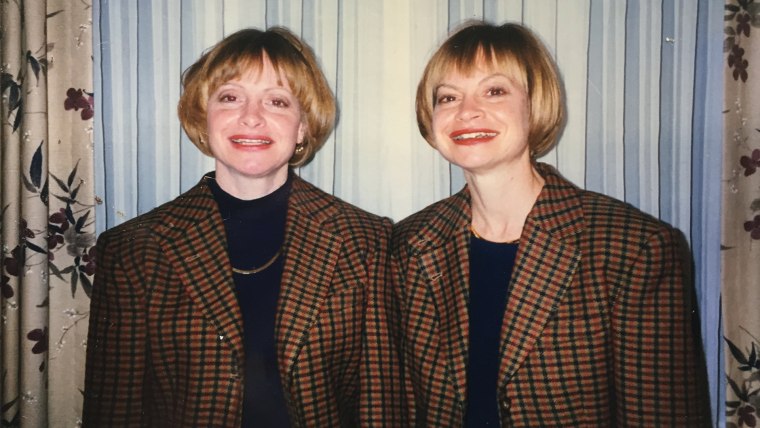Nature versus nurture: It's a debate that researchers have been tackling for years. With so many extraneous factors that may have a hand in influencing a child's growth, it's sometimes hard to tell what is genetic and what has been shaped by the environment.
As part of TODAY's "Summer of Secrets" series, Jenna Bush Hager puts twins under the lens of the nature versus nurture theory.
Twins Sharon Poset and Debbie Mehlman both studied social work, share common interests and, like many twins, can finish each other's sentences. However, the sisters actually spent the first 45 years of their lives apart.
"Our birth mother thought there was one baby, because back then, they didn't do tests," Debbie told TODAY. "Due to circumstances, she gave the baby away. It turned out to be two, so they gave two families a baby."
The sisters met 18 years ago, and both were shocked to find out how alike they were. From hobbies to facial expressions, the two shared many traits, despite not living together.

On the other hand, John Henry and Jackson Friesenhahn are siblings that were raised in the same home but display no biological connection. They are what is considered "virtual twins", as the two are only nine months apart.
"We're twins because we live together," Friesenhahn said of him and his twin brother, John. "We do everything together. And I can't remember a moment not being with him."
Perhaps their level of constant interaction is responsible for the traits they've developed as two separate individuals.
"Usually your personality is based on how you were raised, is what I think," Henry said.

But contrary to common belief, recent research suggests that the influential aspects of nature versus nurture are almost equally split. A study of more than 14.5 million twins over the course of 50 years found that human traits are 49 percent genetic and 51 percent environmental.
"Some people are a little bit concerned when we say that something is genetically influenced. They think that means we can't change the behavior, but that is really not true," said psychologist and behavioral geneticist Nancy Segal.
"There is no behavior that is totally genetic. Everything has an environmental component."